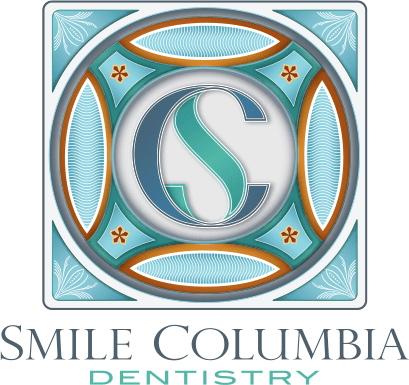Osteonecrosis of the jaw (ONJ) is a potentially quite serious jaw problem that can be linked to dental implants. Some people at high risk for the complication were told that it was better to get removable dentures than dental implants as a result.
But now a new study suggests that advice might have been off-base. That’s because it turns out that ONJ might be more likely for people who have poorly fitting dentures than for those who get dental implants.

What Is Osteonecrosis of the Jaw?
ONJ is a complication of bone healing. The bone doesn’t heal, and it may actually begin to die after an injury, including surgical injury. Understanding why this happens means understanding the process of bone healing.
In truth, the bone doesn’t just heal bone when it’s injured. Instead, the body is constantly crafting and recrafting bone: removing bone with cells called osteoclasts and building bone with osteoblasts. Both are actually part of the bone healing process, too. As it starts building bone to repair an injury, the body removes damaged bone.
ONJ happens when the osteoblasts stop working. Osteoclasts may keep working, and may even work harder than usual.
What makes the osteoblasts stop working? It could be many things. One is radiation, such as radiation therapy for cancer, which kills more osteoblasts than osteoclasts. However, in a weird irony, the process also happens to people taking medication designed to stop osteoclasts, a common approach to fighting osteoporosis.
Bisphosphonates are a common class of osteoporosis medications that suppress osteoclasts. When people take bisphosphonates for a long time–or take very strong versions–they are at risk for ONJ. Another class of medications that interfere with osteoclasts is RANKL inhibitors. RANKL (receptor activator of nuclear factor-kappa B ligand) controls the production of osteoclasts. And it was looking at this type of medication that showed dentures cause more ONJ than dental implants.
Poorly Fitting Dentures Lead to ONJ
The new study grows out of a randomized clinical trial (RCT) of the RANKL inhibitor denosumab. When it was an RCT, women with osteoporosis were placed on either denosumab or placebo for three years. Then in an extension all women were placed on denosumab and asked to report any invasive dental procedures for the next seven years. Nearly half of women had one of these procedures.
The good news is that even though invasive procedures were common, ONJ was not. The study found only an average of 5.2 cases of ONJ per 10,000 patient years. They also found that most of these ONJ cases were related to dental extractions or poorly fitting dentures. In the study, 212 people got dental implants, but only one developed ONJ. Their ONJ healed, and didn’t lead to implant loss.
Why Poorly Fitting Dentures Can Trigger ONJ
This might make you wonder: why would dentures lead to ONJ? With dental implants and extractions, it’s easy to see that there’s an injury to the jawbone that needs to heal. With dentures, the injury is more subtle.
Remember, the body is constantly remodeling the bone, and this includes removing the bone that used to support your teeth. When your dentures don’t fit properly, they can put uneven force on your gums and jawbone, causing it to remove bone faster than it naturally would. This, apparently, can put osteoclasts into overdrive, and if your osteoblasts aren’t working to balance them, the result can be a significant loss of bone.
Good Denture Fit Protects Your Jaw
Traditional dentures are notoriously bad about fit. But they’re not the only denture option available. Instead, you can pick FOY ® Dentures, which utilize some of the latest developments in dentistry to improve denture fit.
To learn more about the benefits of better-fitting dentures in Columbia, SC, please call (803) 781-9090 today for an appointment with denture dentist Dr. Adam Hahn at Smile Columbia Dentistry.

